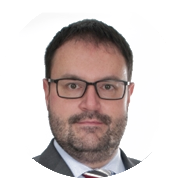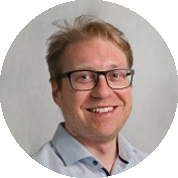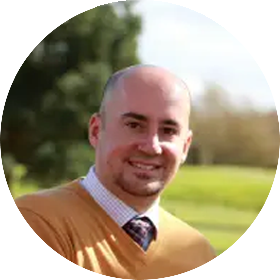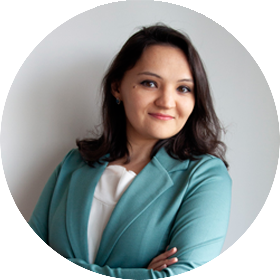Be part of the revolution!
International Doctoral Workshop
The IDW 2022 will be held fully online on MS Teams. Join the virtual room on Nov 5, 9:00 a.m. by clicking the button below.
The program of the IDW is part of the ISM 2022 Program. Download it here!
IDW Program
Join online!
Why to participate?
Enhance your presentation and public speaking skills
Practice your presentation and public speaking skills in an informal session and receive feedback from fellow PhD students and experienced senior scientists active in the I4.0 community.
Learn new technical skills
Join seminars and masterclasses from distinguished professors and professional trainers about popular software tools, useful methodologies and soft skills that are useful for your academic and professional carrier.
Meet the editors and improve your writing skills
Benefit from talks related to manuscript preparation methods and the publication process. At a ‘Meet the editors’ session, journal editors will present their ideas on how to be successful in the publication process.
Enlarge your professional network
Expand your research network, meet new people, make friends and establish good connections for potential visiting periods in other institutions abroad
Get to know business and job opportunities
Non-academic keynote speakers offer a view on the needed skills to work in an Industry 4.0 related non-academic international organisation or company, presenting possible careers opportunities and the selection processes.
Learn while having fun
Enjoy a hands-on, team-based experience during which you will learn concrete academic or business skills while having fun with your fellow PhD students.
When
Saturday, November 5th, 2022
Where
Hagenberg Campus, University of Applied Sciences Upper Austria, Austria
Join us at the IDW
How it works
Step 1 - Submit your application
PhD students interested in attending the IDW should submit their application by October 9th, 2022. An extended abstract of your research project or other research activities where you are involved individually or with other colleagues (max 1000 characters) and a letter of recommendation from your PhD supervisor have to be submitted via the conference submission system. It is not necessary to bring definitive results. Topics related to assumptions, methodological approaches and execution methods are also welcome.
Step 2 - Review of the projects
The projects submitted to the IDW will be reviewed and the number of accepted proposals for the presentations will be limited. Review criteria include: topical fit with ISM, clarity of research purpose (relevance, objectives and research questions), review of relevant literature and thoughtful discussion of research methods. The proposal should have some level of maturity looking for comments. If it is just an initial idea without plans for execution, there is too little content for our faculty to comment upon. On the other hand, it should not be a project that is nearly finished, because comments would be impractical at that stage. The notification of the acceptance will be emailed by October 10th, 2022.
Step 3 - Finalize your registration
The fee for participation in the Doctoral Workshop is 150€. For additional information on how to finalize your registration, please visit the ISM 2022 Registration page or contact Dr. Letizia Nicoletti, l.nicoletti@cal-tek.eu, from the ISM Conference Secretariat.
Step 4 - Discussant assignment
Every participant will be both a presenter and a discussant. Each presenter is associated with a peer discussant. The task of the discussant is to prepare (at least) one question for the presenter in order to start the discussion after the presentation and break the ice.
Step 5 - Show time
The presentations will be held in person on November 5th, 2022, at the Hagenberg Campus of the University of Applied Sciences Upper Austria. You don’t have to send the slides beforehand. Each presentation is allotted about 15 minutes for the presentation and about 5 minutes for the discussion. Please, be strict with respect to these times.
Step 6 - Enjoy other activities
Seminars, events and masterclasses will be held during the IDW. Since software tools and case studies will be carried out, we recommend you to bring your laptop in order to get the most from the training sessions with software tools.
Seminars & Masterclasses


Application and Analysis of Metaheuristic Algorithms for Simulation-based Optimization with HeuristicLab
In this seminar we demonstrate how HeuristicLab can be used to solve optimization problems implemented in different applications. HeuristicLab includes a generic protocol that facilitates data exchange with arbitrary applications as well as customized interfaces that exchange data with specific programs. In the seminar a brief overview of HeuristicLab and its concepts will be given after which several concrete use cases will be presented and demonstrated.
Participants will learn different ways to connect arbitrary applications to HeuristicLab such that they can be used for solution evaluation. They will also get to know how to apply metaheuristic optimiza-tion algorithms in HeuristicLab to solve optimization problems defined in HeuristicLab, or in another application.
[1] https://dev.heuristiclab.com
[2] https://github.com/heal-research/HeuristicLab
[3] https://heal.heuristiclab.com
[4] https://www.symreg.at
[5] https://www.adaptop.at
Biographical Sketch
Andreas Beham received his MSc in computer science in 2007 and his PhD in engineering sciences in 2019, both from Johannes Kepler University Linz, Austria. He works as senior researcher at the R&D facility at University of Applied Sciences Upper Austria, Hagenberg Campus and is leading several funded research projects. Dr. Beham is co-architect of the open source software environment Heu-risticLab and member of the Heuristic and Evolutionary Algorithms Laboratory (HEAL) research group led by Dr. Affenzeller. He has published more than 80 documents indexed by SCOPUS and applied evolutionary algorithms, metaheuristics, mathematical optimization, data analysis, and sim-ulation-based optimization in industrial research projects. His research interests include applying dynamic optimization problems, algorithm selection, and simulation-based optimization and inno-vization approaches in practical relevant projects.
Meet the Editors!

Biographical Sketch
Best Presentation Award

The Best Presentation Award is given by the ISM 2022 IDW Organizing Board to the most outstanding presentation based on the score of the secret voting by all discussants. Student presentations will be judged on criteria relating to the academic content and professional presentation. Following the judging, the winning student will be presented with their award at the conference and will receive a certificate.
Registration and Fee
IDW Registration | 150 €
Registration will open soon
What is included
- IDW Welcome Kit
- Access to IDW
- Access to ISM Plenary and Parallel Sessions
- Access to ISM Coffee Breaks
What is not included
- Access to ISM luncheons/gala dinner
- Paper publication on Procedia Computer Science
The organizing team
International Doctoral Workshop Board



Frequently Asked Questions (FAQs)
We emphasize that we expect all submissions to the doctoral workshop to be research proposals and projects, not finalized manuscripts, conference papers or journal articles.
